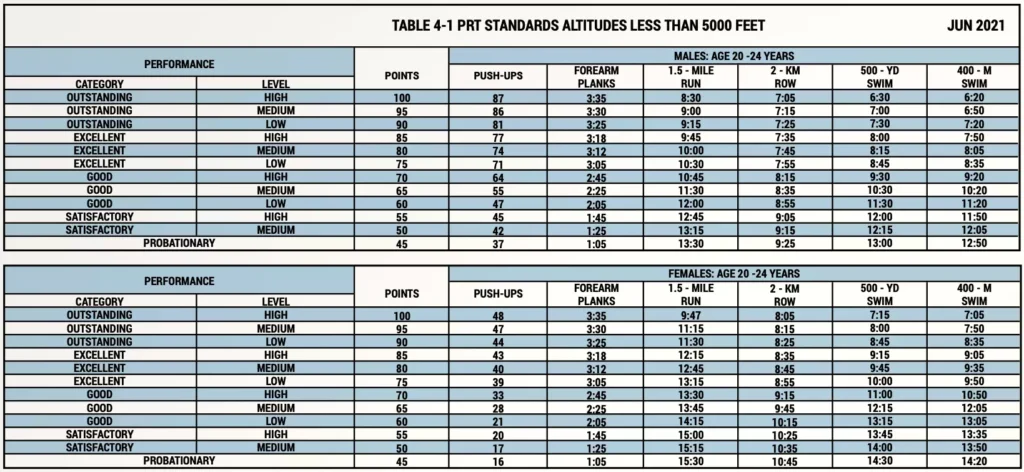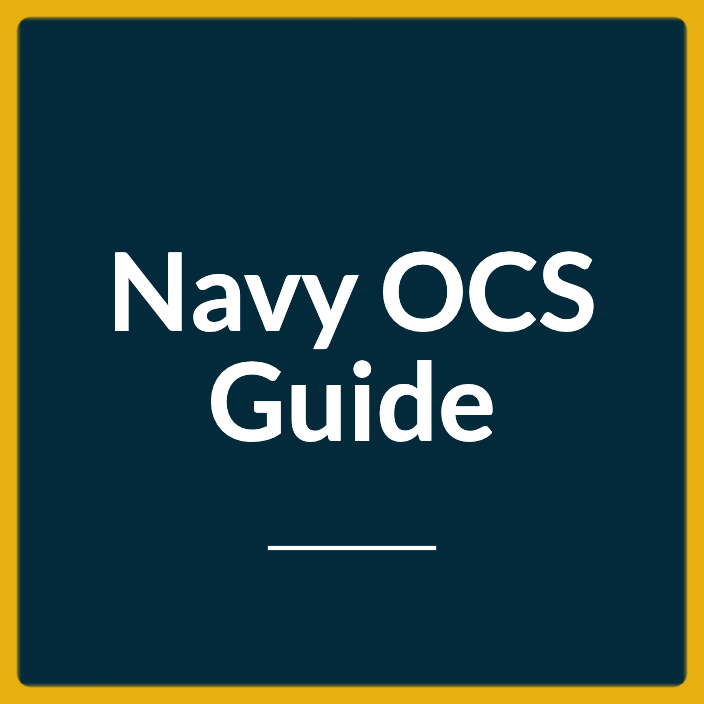Thinking about becoming a Navy Officer? One of your first big hurdles is Officer Candidate School (OCS).
But how hard is it? Can anyone push through, or does it take a certain kind of person with serious grit?
We’re breaking it down—the requirements, the training, the challenges. From physical fitness tests to mental endurance drills, here’s what it really takes to survive and succeed at Navy OCS.
Get ready—this isn’t for the faint of heart.
Navy Officer Candidate School
What Is Navy OCS?
Navy Officer Candidate School (OCS) is where future naval officers are trained and tested. It’s a 12-week program designed to push candidates physically, mentally, and professionally.
Who Can Apply?
- 4-year college degree from an accredited school.
- Meet minimum physical fitness standards.
- Strong leadership skills and a commitment to service.
What to Expect in Training
- Physical conditioning – endurance, strength, and military drills.
- Leadership principles – learning to lead under pressure.
- Damage control & military bearing – mastering core naval skills.
The End Goal
Graduate OCS, and you’ll earn your commission as a Navy Officer and take command as a division officer in your field.
It’s tough, demanding, and not for everyone. But for those who make it, it’s a path to leadership, service, and honor.
Now, let’s break down the minimum requirements to join this elite group.
Minimum Requirements for Navy OCS
Qualifications
The qualifications for Navy OCS include:
1. Age: Candidates must be between the ages of 19 and 35 at the time of application.
2. Citizenship: Applicants must be U.S. citizens or permanent residents.
3. Education: Applicants must have earned a bachelor’s degree from an accredited college or university with a minimum GPA of 2.5.
4. Medical standards: Navy OCS candidates must meet specific medical standards, which include physical fitness, visual acuity, and hearing requirements.
5. Background check: As part of the screening process, applicants undergo extensive background checks, including criminal history, credit history, and drug testing, to ensure that they meet the high ethical standards required by the Navy.
6. Physical Readiness test (PRT): Candidates must pass a Physical Readiness Test which comprises timed push-ups, sit-ups, and a 1.5-mile run within established age and gender-specific standards.
We should note that these qualifications are subject to change based on current policies and regulations set forth by the U.S. Navy’s Recruiting Command Office or any other agency instructed to manage Naval Officers Candidate School applications and recruitment activities under applicable laws and directives governing military commissioning processes.
Physical Fitness Requirements
Navy OCS isn’t just about learning to lead. You’ve got to be physically ready too. The PRT at Officer Training Command Newport (OTCN) makes sure of that.
What’s on the Test?
- Push-ups – As many as you can in 2 minutes
- Plank – Hold for a set time (no more sit-ups)
- 1.5-mile run – Finish under the minimum time
Mess up any of these? You don’t pass. You need at least “Satisfactory Medium” in every event.
Body Composition Assessment (BCA)
Candidates must also pass the Navy’s body fat standards, which include:
- Abdominal circumference measurements
- Body fat percentage calculations
Physical Training at OCS
OCS physical training includes:
- Daily strength & conditioning workouts (push-ups, planks, etc.)
- Running & endurance training to meet Navy standards
Why It Matters
Physical fitness isn’t just about passing OCS—it’s about being a capable leader. Strong officers build:
- Mental toughness
- Resilience under pressure
- Command presence
Failing to meet fitness standards isn’t an option. OCS pushes candidates to their limits—because in the Navy, fitness is non-negotiable.
Application Process for Navy OCS
Getting into Navy Officer Candidate School isn’t a walk in the park. It’s competitive, and they don’t take just anyone.
The Process
- Find an Officer Recruiter – They’ll break it all down and tell you what you need.
- Interviews – Expect to sit down with recruiters and other military personnel.
- Fitness Test – You have to meet Navy standards.
- Medical Screening – Full checkup to make sure you’re fit for service.
Is It Worth It?
It’s a tough process, no doubt. Is it worth it? For sure. So if you’re serious about serving, this is where it starts.
Now, let’s go step by step through the application.
Basic Steps to apply for Navy OCS
To apply for the Navy Officer Candidate School, one must first meet the eligibility requirements outlined by the Navy. These requirements include being a U.S. citizen, having a bachelor’s degree from an accredited institution, and meeting specific age and physical fitness standards.
Once these requirements have been met, interested candidates can begin the application process, which typically includes the following steps:
1. Contacting a Navy Officer Recruiter – Candidates should reach out to their local recruiter, who will guide them through the application process and answer questions they may have.
2. Completing Basic Requirements – Candidates must submit transcripts, letters of recommendation, and complete medical examinations to ensure they meet Navy medical standards.
3. Taking the ASTB-E or OAR – The Aviation Selection Test Battery-Enhanced (ASTB-E) is required for those applying to be pilots or flight officers in the Naval Aviation community. Those who are not applying for an aviation position will take the Officer Aptitude Rating (OAR).
4. Submitting an Officer Application Package – The package includes essays, personal statements, and other documentation requested by OCS.
5. Interview with Officer Recruiter – After submitting your application package successfully, the applicant needs to pass an Interview held with the officer recruiter about any question related to the candidate’s background or extra-curricular activities.
6. Selection Board Review – Once I submit all documents, it would undergo thorough review by the selection board followed by a security clearance screening. After successful completion of all processes, if selected, then the candidate gets his/her orders for OCS, followed by reporting on time.
The Navy will accept candidates into Navy OCS and provide them with further training before commissioning them as Surface Warfare Officers (SWOs), Naval Aviators (pilots) or Naval Flight Officers (NFOs).
Tips for a successful application
Getting into Navy OCS means meeting the basic requirements and proving you’ve got what it takes to lead.
Here’s what you need to do:
- Hit the Minimum Requirements
- 4-year college degree from an accredited school.
- Be physically fit and meet age requirements.
- Talk to an Officer Recruiter
- They’ll walk you through the process and set up interviews and fitness tests.
- Prove You Can Lead
- Step up for leadership roles at school, work, or in the community.
- Join team sports or volunteer where you can take charge.
- Train Like You Mean It
- Start now. Cardio and strength training will prep you for the Navy’s fitness test.
- Live With High Standards
- Be disciplined. Stay committed to excellence in everything you do.
It’s tough, but those who stick with it have a shot at becoming Navy leaders. Hard work gets you there.
Is Navy Officer Candidate School Hard?
Yes. Navy Officer Candidate School (OCS) is hard, but you can complete it successfully with proper preparation.
Navy OCS isn’t just a training program—it’s a test of leadership, endurance, and mental toughness.
What Makes It Tough?
- Physical Conditioning – You’ll need to meet high fitness standards.
- Military Training – Learn damage control, navigation, and combat tactics.
- Leadership Development – You’re not just training—you’re preparing to lead.
The Path Forward
OCS is just the beginning. After commissioning, officers serve as division officers or attend advanced schools to specialize in different Navy fields.
It’s not easy—but for those who push through, it leads to a career of service and leadership.
Wondering what the actual training looks like? Let’s take a closer look at the curriculum.
Officer Candidate School Curriculum
Navy OCS is about one thing—turning candidates into leaders. It’s tough, it’s demanding, and it’s built to push you physically and mentally.
What You’ll Learn
- Leadership principles – How to lead under pressure.
- Damage control – What to do when things go wrong at sea.
- Naval history – Know the past, understand the mission.
- Communication & ethics – Make decisions, own them.
The Three Phases of OCS
1. Indoctrination Phase
- Physical training – Running, push-ups, getting stronger fast.
- Navy core values – Honor, courage, commitment—live them.
- Military customs – The basics of how the Navy operates.
2. Development Phase
- Leadership training – Learning to take charge.
- Damage control & tactics – Handling shipboard crises.
- Communication skills – Direct, clear, no nonsense.
3. Commissioning Phase
- Graduation from OCS – You made it.
- Ensign commission – Time to lead for real.
Next: What daily life at OCS looks like.
Leadership Principles Taught in Navy OCS
Navy OCS builds leaders, not just officers. The training drills discipline, integrity, and decision-making into candidates, shaping them into leaders who can handle high-pressure situations.
Core Leadership Principles
- Integrity – Always honest, always accountable. Navy officers lead by example, both personally and professionally.
- Accountability – Own your actions and your team’s. Mission success or failure—it all comes back to you.
- Initiative – Spot problems, find solutions. Waiting isn’t an option.
- Decisiveness – Make the call, even under pressure. Hesitation costs lives.
- Emotional Intelligence – Know yourself, understand your team. Control your emotions, read the room.
- Respect – No rank, background, or gender excuses disrespect. Every team member matters.
- Teamwork – Build strong teams. Set goals, resolve conflicts, and execute as one.
- Competence – Know your job, know your mission. A leader without skill is a liability.
These principles aren’t just taught—they’re tested in high-stress environments. Master them, and you’ll lead anywhere—at sea, on land, or wherever the mission takes you.
Damage Control Training
When something goes wrong at sea, there’s no calling 911. That’s why damage control training is a huge part of Navy OCS.
What You’ll Learn
- How to prevent, contain, and respond to fires, flooding, and combat damage.
- How to use gear like fire extinguishers, hoses, and pumps.
- How to assess damage fast and decide what gets fixed first.
It’s No Joke
- Physically demanding—you have to be in shape to handle it.
- No time to panic—you learn to stay cool and think under pressure.
- Teamwork is everything—no one saves a ship alone.
OCS isn’t just about wearing a uniform. When things go south, officers lead. You need to be ready.
Mental Toughness Training in Navy OCS
Navy OCS isn’t just about physical endurance—it’s a mental battle. Candidates are pushed to their limits to prove they can handle stress, pressure, and chaos.
What It Teaches
- Stay focused under pressure – Panic doesn’t solve problems.
- Make fast, smart decisions – Even when everything is falling apart.
- Keep composure in critical moments – Leaders don’t crack.
How They Push You
- Obstacle courses – Stress, exhaustion, problem-solving all at once.
- Simulated combat scenarios – Chaos, confusion, and snap decisions.
- Leadership tests – Making the call when everyone’s looking at you.
Why It Matters
This isn’t just about getting through OCS. It’s about leading when things go wrong. Mental toughness separates those who survive from those who lead.
Strategies to Develop Mental Toughness During Training
Success in the military isn’t just about physical strength—it’s about mental endurance. Here’s how candidates can toughen up during training:
- Push Yourself Physically – Strength and endurance training build discipline and resilience. The tougher you are physically, the tougher you are mentally.
- Lead by Example – Live the core values of your branch. Leadership isn’t about barking orders—it’s about setting the standard.
- Control Your Mindset – Positive self-talk keeps you focused when things get rough. Doubt slows you down.
- Stay in the Moment – Breathing exercises, visualization, and meditation help keep your head clear under stress.
- Train for Chaos – Damage control drills and high-pressure scenarios sharpen decision-making when seconds matter.
Mental toughness isn’t automatic—it’s built through training, discipline, and pushing past limits. Those who develop it become the leaders others trust when it counts.
Physical Conditioning in Navy OCS
Physical fitness isn’t just a requirement at Navy OCS—it’s a way of life. Candidates must meet strict fitness standards and maintain them throughout their careers.
How to Prepare for OCS
- Build endurance, strength, and agility through regular workouts.
- Train in running, swimming, weightlifting, and calisthenics before you get there.
- Start early—waiting until OCS to get in shape is a mistake.
The Navy Physical Fitness Assessment (PFA)
Candidates must pass the PFA, which includes:
- Timed runs
- Push-ups
- Planks (replacing sit-ups)
They’ll also be tested in:
- Rope climbs
- Obstacle courses
- Swimming
Why It Matters
- Fitness = readiness. Officers must be physically capable of leading in high-stress environments.
- Stronger body, stronger mind. Regular training builds mental toughness and discipline.
OCS isn’t about scraping by—it’s about being ready to lead.
Next up: What are the exact fitness standards candidates must meet? Let’s break it down.
Physical Fitness Standards for Officer Candidates
Officer candidates must meet strict fitness standards to complete Navy OCS. The Navy Physical Fitness Assessment (PFA) includes:
- 1.5-mile run (timed)
- Push-ups (timed)
- Planks (replacing sit-ups)
- Body composition measurement
Minimum PFA Requirements
| Event | Male Standard | Female Standard |
|---|---|---|
| 1.5-Mile Run | ≤ 12:15 | ≤ 14:45 |
| Body Fat % | ≤ 22% | ≤ 33% |
| Push-ups & Planks | Varies by age | Varies by age |
Why It Matters
- Fail the PFA? You don’t pass OCS.
- Fitness isn’t just for training—it’s for your career.
- Strong body = strong leader.
Staying in shape isn’t optional. Train hard before OCS, or you’ll struggle.
PRT Standards

Do You Have What It Takes?
Navy OCS isn’t easy. It’s not supposed to be. They push you hard—physically, mentally, and as a leader. You’ll be tested in ways you’ve never experienced before.
If you’re not ready to train, to lead, and to take responsibility for others, this isn’t for you. But if you’re willing to put in the work, push past limits, and prove you belong, you’ll come out the other side as a Navy Officer.
Not everyone makes it. The ones who do? They earn it.

